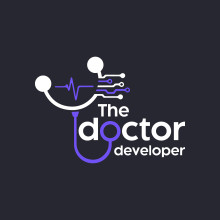Course description
Cardiology is a medical specialty that focuses on the diagnosis, treatment, and prevention of diseases and conditions related to the heart and circulatory system. It is a branch of internal medicine that encompasses the study of the heart, blood vessels, and the circulatory system's overall function.
Key aspects of cardiology include:
1. **Diagnostic Procedures:**
Cardiologists utilize various diagnostic procedures to assess heart health and functionality, including electrocardiograms (EKG/ECG), echocardiography, stress tests, cardiac catheterization, and cardiac imaging (e.g., MRI, CT scans).
2. **Disease Management:**
Cardiologists diagnose and manage a range of heart conditions, such as coronary artery disease, heart failure, arrhythmias (irregular heart rhythms), valvular heart disease, congenital heart defects, and hypertension (high blood pressure).
3. **Treatment Modalities:**
Cardiology involves the use of different treatment modalities, including medication management, lifestyle modifications (e.g., diet, exercise), interventional procedures (e.g., angioplasty, stent placement), cardiac surgeries (e.g., bypass surgery, valve replacement), and implantation of devices like pacemakers or defibrillators.
4. **Preventive Care:**
Cardiologists emphasize preventive care to reduce the risk of heart disease. This includes advising on healthy lifestyle habits, managing risk factors (e.g., high cholesterol, diabetes, smoking), and early detection and intervention to prevent heart-related complications.
5. **Collaborative Care:**
Cardiologists often collaborate with other healthcare professionals, such as cardiac surgeons, interventional radiologists, primary care physicians, nurses, and dietitians, to provide comprehensive care to patients.
6. **Research and Advancements:**
The field of cardiology is continuously evolving with ongoing research, clinical trials, and technological advancements. New treatments, medications, and interventions are continually being developed to enhance patient outcomes and quality of life.
7. **Patient Education:**
Cardiologists play a vital role in educating patients about heart health, risk factors, treatment options, and lifestyle modifications to empower them to actively participate in their care and make informed decisions.
In summary, cardiology is a specialized medical field that focuses on the heart and circulatory system's health, encompassing diagnosis, treatment, prevention, and management of various heart conditions. Cardiologists strive to improve the overall well-being of patients through a combination of medical expertise, advanced technology, research, and patient education.






